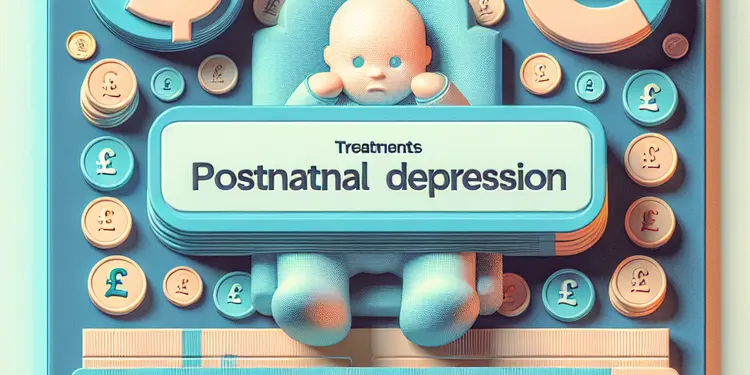
Find Help
More Items From Ergsy search
-
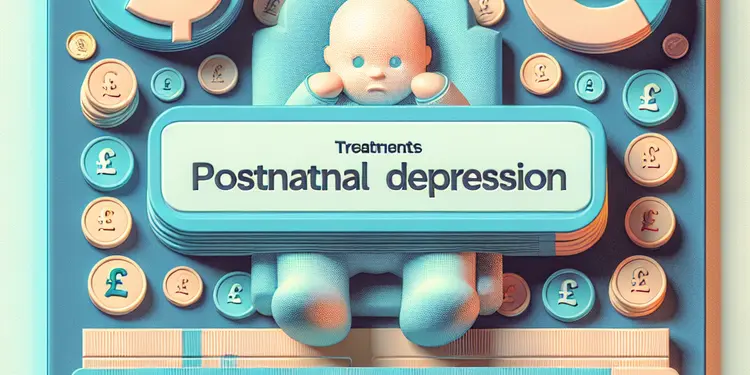
Are there treatments available for postnatal depression?
Relevance: 100%
-
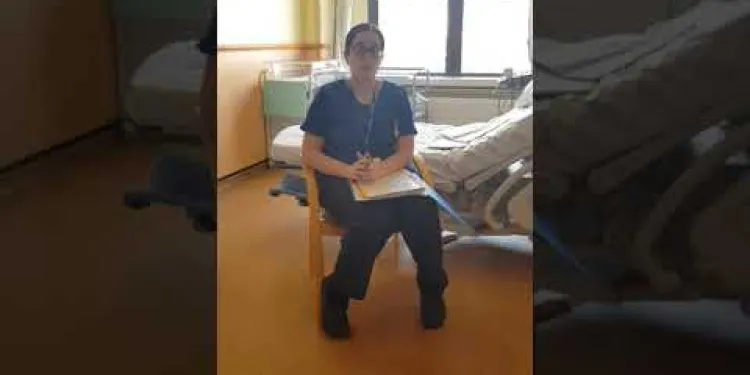
Postnatal Depression
Relevance: 92%
-
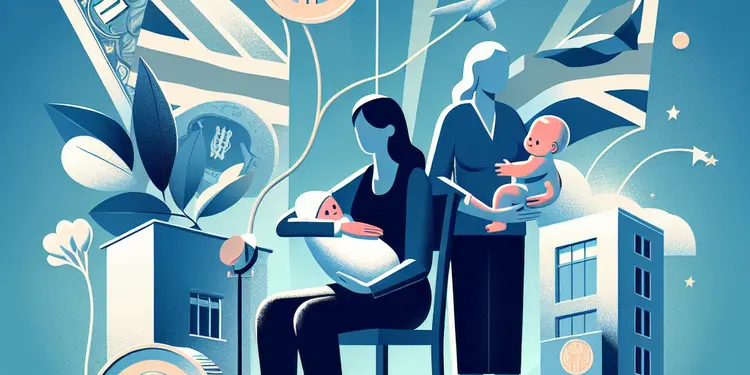
Can postnatal depression recur after treatment?
Relevance: 91%
-
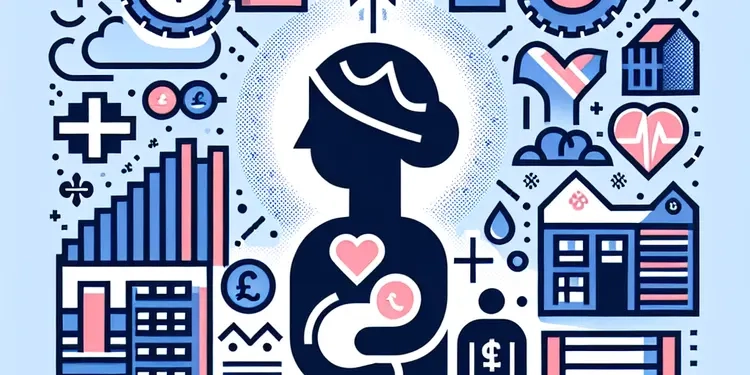
What is postnatal depression?
Relevance: 89%
-

Is postnatal depression a long-term condition?
Relevance: 85%
-

What causes postnatal depression?
Relevance: 85%
-
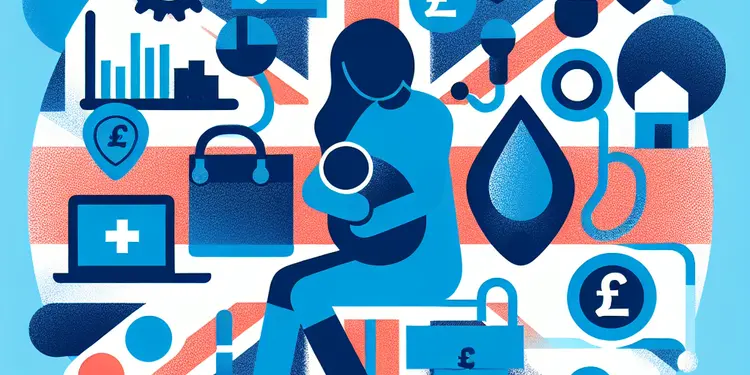
How is postnatal depression diagnosed?
Relevance: 84%
-

Postnatal Depression - Leanne's Story
Relevance: 83%
-
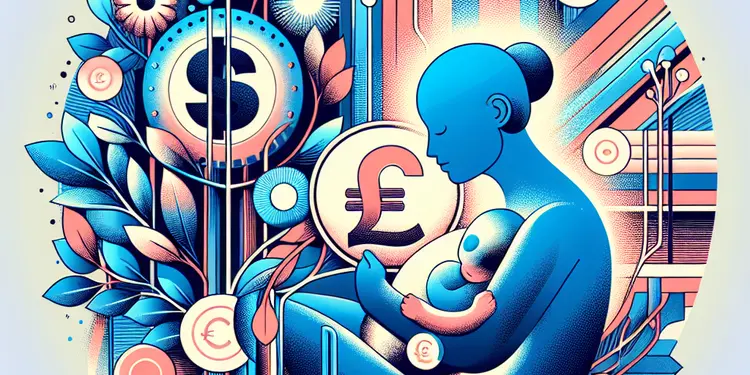
What are the symptoms of postnatal depression?
Relevance: 83%
-
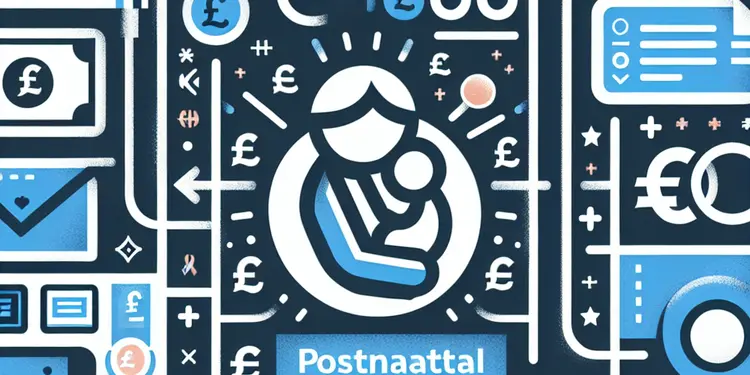
Is postnatal depression preventable?
Relevance: 82%
-
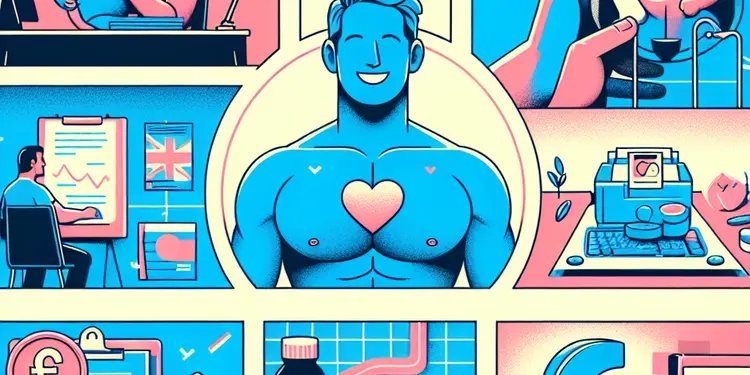
Is medication necessary for treating postnatal depression?
Relevance: 82%
-

Can fathers experience postnatal depression?
Relevance: 79%
-
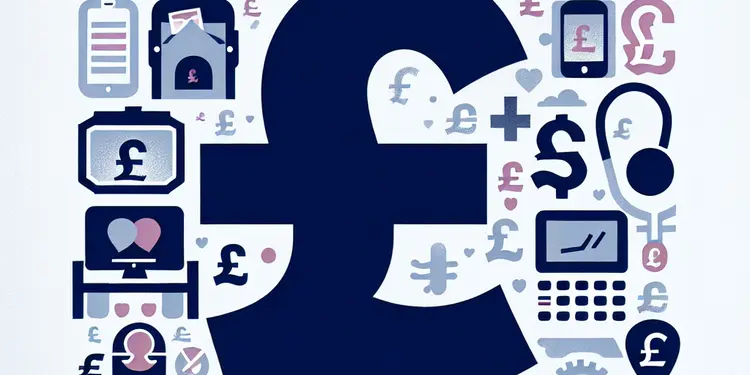
What should I do if I suspect I have postnatal depression?
Relevance: 79%
-
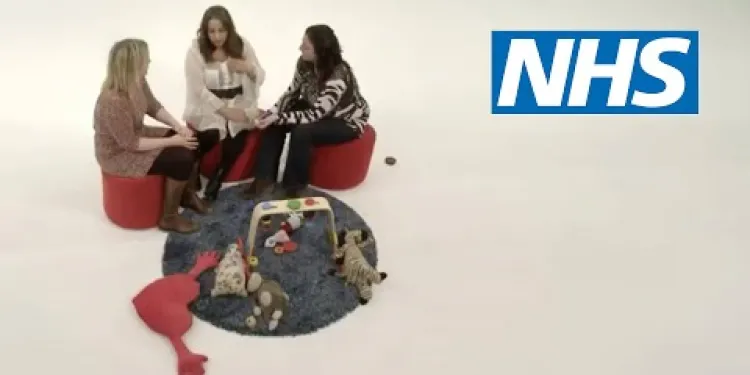
How do I know if I have postnatal depression? | NHS
Relevance: 79%
-
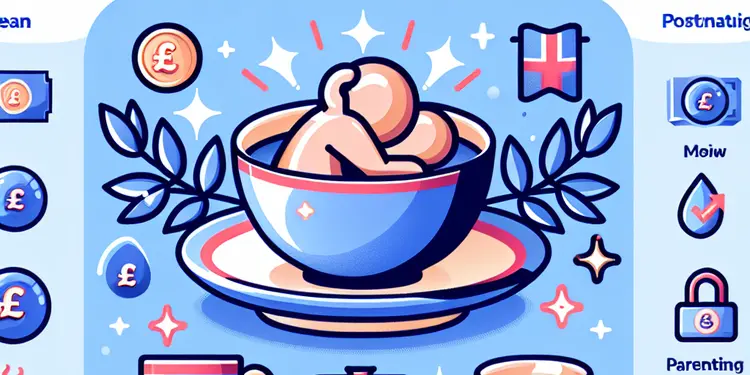
Are there support groups for postnatal depression?
Relevance: 79%
-

Can lifestyle changes help with postnatal depression?
Relevance: 77%
-
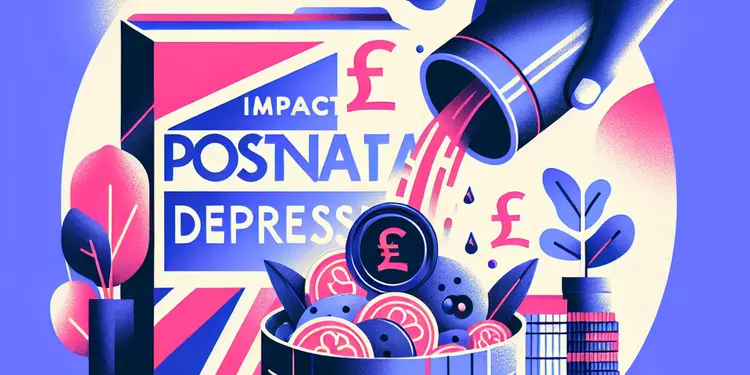
Can diet impact postnatal depression?
Relevance: 76%
-
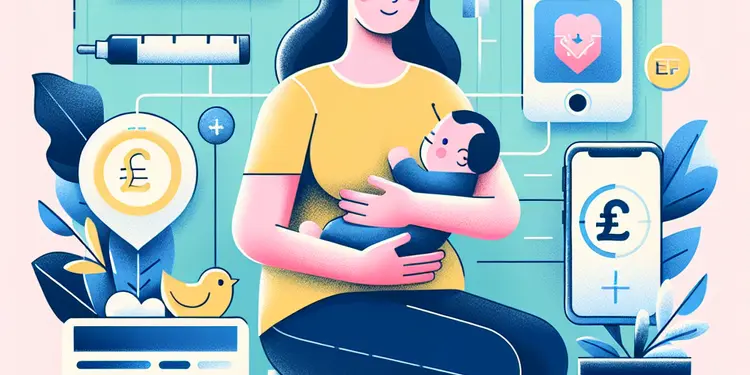
How is postnatal depression different from the 'baby blues'?
Relevance: 76%
-

Can postnatal depression affect subsequent pregnancies?
Relevance: 75%
-
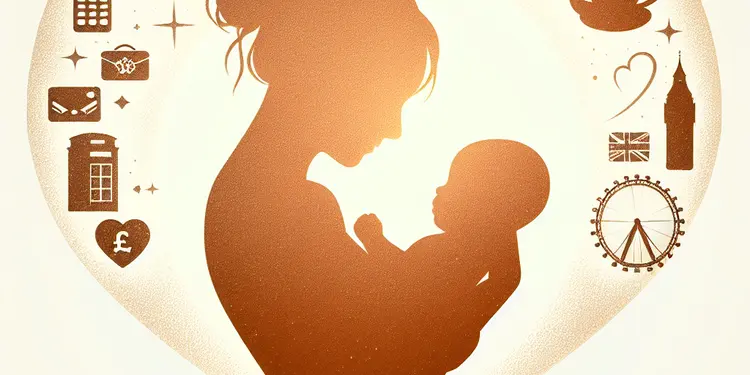
How does postnatal depression affect bonding with the baby?
Relevance: 75%
-

Should someone with postnatal depression seek professional help?
Relevance: 75%
-
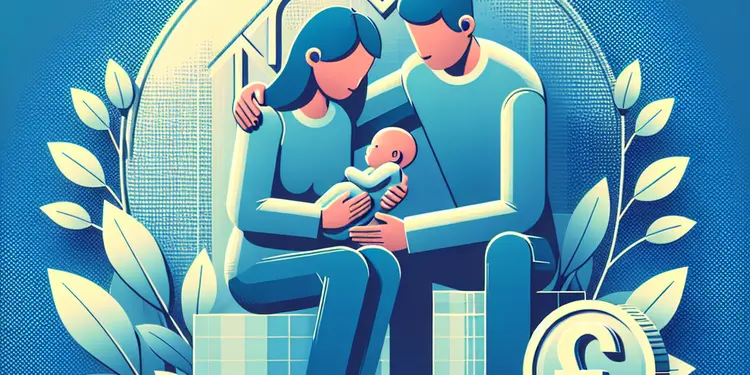
How can family members support someone with postnatal depression?
Relevance: 68%
-
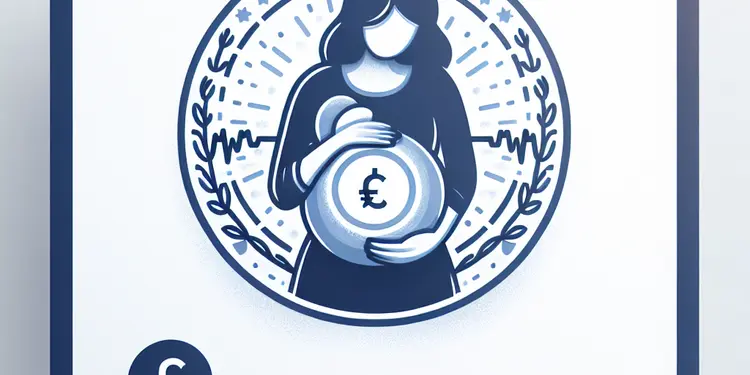
How soon after childbirth can postnatal depression occur?
Relevance: 52%
-

Treating anxiety and depression - www.slam.nhs.uk
Relevance: 39%
-

Clinical depression: Lawrence's story | NHS
Relevance: 37%
-

Can physical symptoms be linked to relationship-induced depression?
Relevance: 34%
-
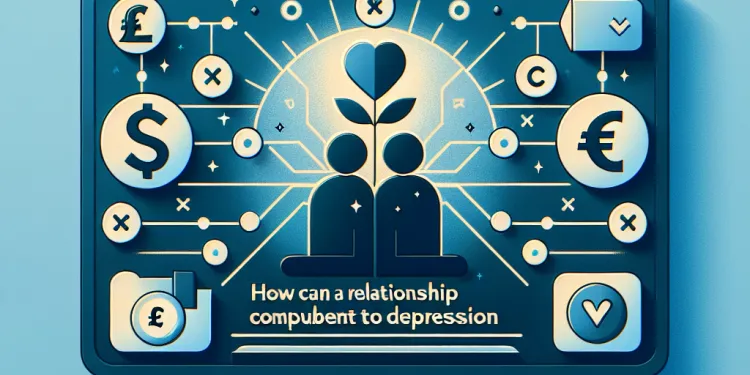
How can a relationship contribute to depression?
Relevance: 33%
-
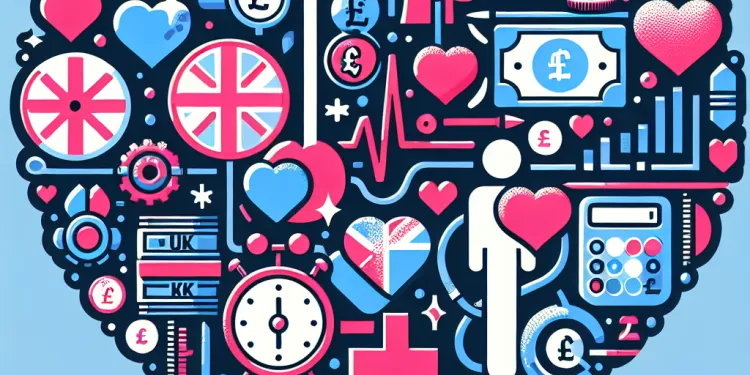
What are the signs that my relationship is making me depressed?
Relevance: 33%
-
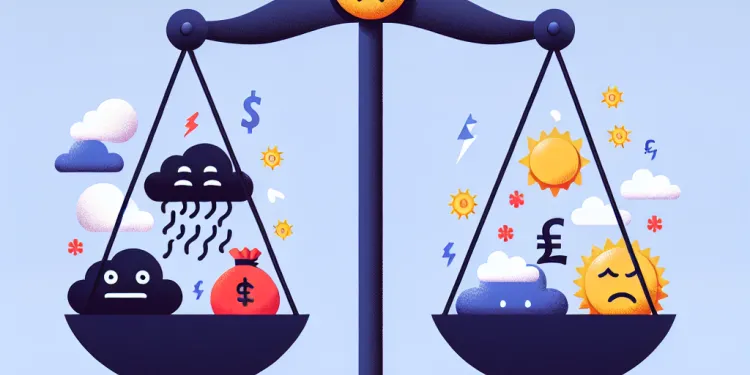
What role do unhealthy dynamics play in causing depression?
Relevance: 33%
-
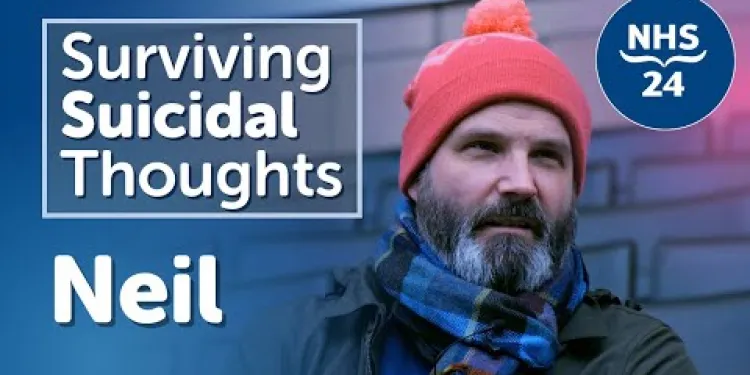
I couldn't celebrate Hibs beating Hearts because I was that depressed
Relevance: 31%
-

Are there any self-care strategies to cope with relationship-induced depression?
Relevance: 31%
-
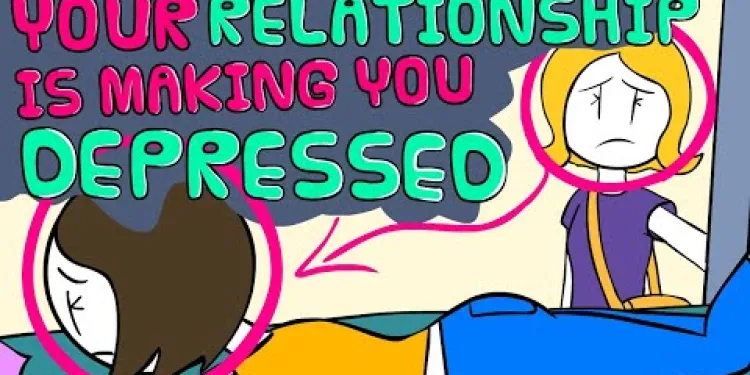
7 Signs Your Relationship is Making You Depressed
Relevance: 31%
-

What should I do if my partner dismisses my feelings of depression?
Relevance: 28%
-

Postpartum Health: Mother and Baby
Relevance: 25%
-

How quickly can ketamine alleviate depression symptoms?
Relevance: 25%
-

What are common treatments for ADHD?
Relevance: 23%
-
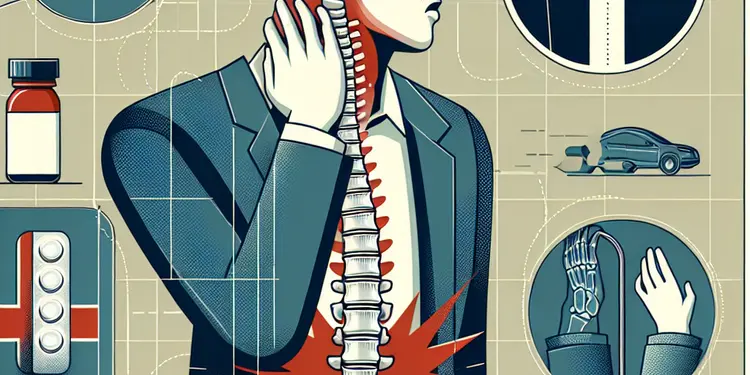
What are the treatment options for whiplash?
Relevance: 23%
-
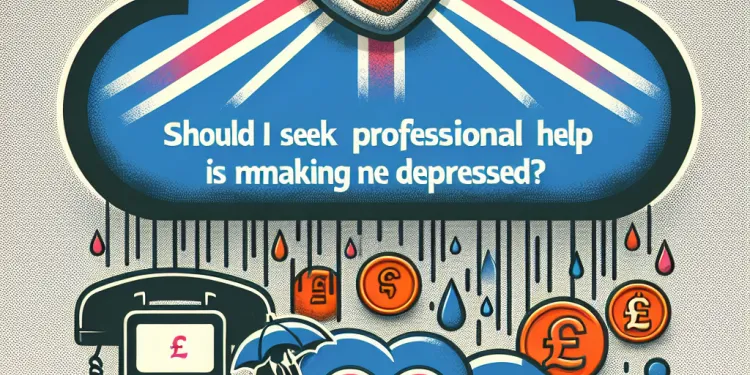
Should I seek professional help if my relationship is making me depressed?
Relevance: 22%
-
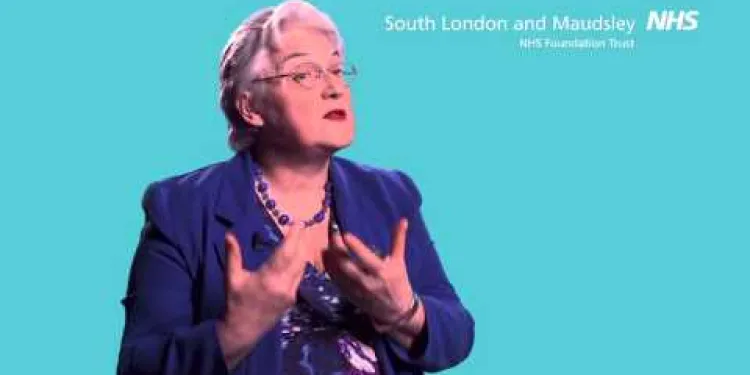
Eating disorders: treatment
Relevance: 22%
-
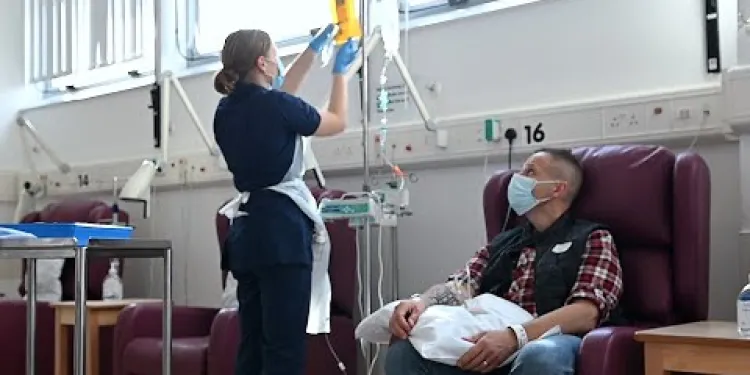
Having chemotherapy and other treatments in the Day Treatment Unit
Relevance: 22%
Are There Treatments Available for Postnatal Depression?
Postnatal depression (PND) is a significant mental health issue that affects many parents after the birth of a child. It can impact both mothers and fathers, although it is more commonly reported in women. Understanding the available treatments for postnatal depression is crucial for recovery and improving long-term outcomes for new parents and their families. In the UK, several treatment options are accessible, offering hope and support to those affected.
Seeking Professional Help
One of the first steps in treating postnatal depression is seeking professional help. It is essential to consult with a GP who can provide a comprehensive assessment. GPs can diagnose postnatal depression and discuss various treatment options. In some cases, they may refer the individual to a specialist, such as a psychiatrist or a clinical psychologist, for further evaluation and management. Early intervention is key to mitigating symptoms and promoting recovery.
Counselling and Psychotherapy
Psychological therapies are a cornerstone in the treatment of postnatal depression. Cognitive Behavioural Therapy (CBT) is a popular and effective approach that helps individuals understand and change their thought patterns and behaviours. Talking therapies, such as counselling, offer a safe space to express feelings and develop coping strategies. These therapies are typically provided by trained mental health professionals within the NHS or through private practice. Psychological treatments can be beneficial in addressing both mild and severe forms of postnatal depression.
Medication
For some individuals, medication may be recommended as part of their treatment plan. Antidepressants can be effective in alleviating the symptoms of postnatal depression. It is important to discuss the potential benefits and risks of taking medication with a healthcare professional, especially for breastfeeding mothers. Tailored medication plans can be developed to suit the needs of each individual, ensuring the safety of both parent and baby.
Support Groups and Peer Support
Support groups can play a vital role in the treatment and recovery process for those experiencing postnatal depression. Connecting with others who share similar experiences can reduce feelings of isolation and provide emotional support. In the UK, various charities and organisations offer peer support services, both in-person and online. These resources can be invaluable for building a network of understanding and encouragement.
Self-Care and Lifestyle Changes
In addition to professional treatment, incorporating self-care and lifestyle changes can aid in the recovery from postnatal depression. Regular physical activity, a balanced diet, and adequate sleep are important for mental well-being. Mindfulness practices and relaxation techniques can also help manage stress and improve mood. Involvement of family and friends in the recovery process can provide additional support and understanding.
In conclusion, postnatal depression is a treatable condition with a range of effective interventions available in the UK. By seeking appropriate help and utilizing the various support systems, individuals can work towards recovery and improve their quality of life and family dynamics.
Are There Treatments Available for Postnatal Depression?
Postnatal depression is when parents feel very sad after having a baby. It can affect both mums and dads, but it happens more often in mums. Getting the right help is very important. There are different treatments that can help parents feel better. These are available in the UK and give hope and support to families.
Seeking Professional Help
The first step to feeling better is to talk to a doctor. A doctor can check how you are feeling and see if you have postnatal depression. They will talk about ways to help you feel better. Sometimes, they might ask another expert, like a psychiatrist, to help too. Getting help early can make things better sooner.
Counselling and Psychotherapy
Talking to someone about how you feel is very helpful. There is a type of talking called Cognitive Behavioural Therapy (CBT). It helps you change the way you think and feel. Counselling lets you talk in a safe place. These talks can help with mild or more serious feelings. Trained professionals give these talks, and you can get this help through the NHS or privately.
Medication
Sometimes, medicine might help you feel better. Antidepressants are medicines that can help with postnatal depression. It is important to talk to a doctor about taking medicine, especially if you are breastfeeding. The doctor will help find the right medicine for you and your baby.
Support Groups and Peer Support
Joining a group where you can meet other people who feel the same can help a lot. It can stop you from feeling alone and give you friends to talk to. In the UK, charities and groups offer support in person and online. These groups give understanding and support to help you feel better.
Self-Care and Lifestyle Changes
Taking care of yourself every day is important. Doing things like exercise, eating well, and getting enough sleep helps you feel better. Relaxing and being mindful can help with stress. Family and friends can give extra support and help you feel loved and understood.
In conclusion, postnatal depression can be treated. In the UK, there are many ways to get help. By getting the right help and support, you can feel better and happier with your family.
Frequently Asked Questions
What is postnatal depression?
Postnatal depression is a type of depression that can affect parents following the birth of a baby. It can manifest through feelings of sadness, fatigue, anxiety, and may interfere with daily life.
Are there treatments available for postnatal depression?
Yes, there are several treatments available for postnatal depression including therapy, medication, and support groups. It's important to seek professional help to determine the appropriate treatment.
Can therapy help with postnatal depression?
Yes, therapy can be very effective in treating postnatal depression. Cognitive behavioral therapy (CBT) and interpersonal therapy (IPT) are commonly used approaches.
Is medication a viable option for treating postnatal depression?
In some cases, medication such as antidepressants may be recommended by a healthcare provider to help manage symptoms of postnatal depression.
Are there any support groups for postnatal depression?
Yes, many communities and organizations offer support groups where individuals experiencing postnatal depression can share their experiences and receive support from others.
How do healthcare professionals diagnose postnatal depression?
Healthcare professionals typically diagnose postnatal depression through a combination of interviews, questionnaires, and a discussion of the individual's symptoms and medical history.
Can lifestyle changes help with postnatal depression?
Yes, lifestyle changes such as regular exercise, a healthy diet, sufficient sleep, and stress-reduction techniques can complement other treatments for postnatal depression.
Is postnatal depression the same as the 'baby blues'?
No, the 'baby blues' are a common and short-lasting experience of emotional ups and downs that occur shortly after childbirth, while postnatal depression is more severe and longer-lasting.
How common is postnatal depression?
Postnatal depression is relatively common, affecting about 10-20% of new mothers, though it can also affect fathers and adoptive parents.
What should I do if I suspect I have postnatal depression?
If you suspect you have postnatal depression, it is important to seek help from a healthcare provider, who can guide you toward the appropriate treatment options.
Are there any risks to taking antidepressants during breastfeeding?
Some antidepressants are considered safe during breastfeeding, but it is crucial to discuss the risks and benefits with a healthcare provider.
Can partners also experience postnatal depression?
Yes, partners can also experience postnatal depression, although it is less common than in mothers. Support and treatment are important for partners as well.
How long does postnatal depression last?
The duration of postnatal depression varies, but with appropriate treatment, many people start to feel better within a few months. Without treatment, it can last longer.
Is it normal to have conflicting feelings about being a parent during postnatal depression?
Yes, experiencing conflicting feelings about parenthood is a common aspect of postnatal depression. Professional support can help address these feelings.
Can alternative treatments be used for postnatal depression?
Some individuals find alternative treatments like yoga, meditation, or acupuncture helpful as part of a comprehensive treatment plan for postnatal depression, but these should not replace conventional treatments.
Is it possible to prevent postnatal depression?
While it may not be possible to completely prevent postnatal depression, risk can be reduced through awareness, early detection, and support during pregnancy and after birth.
How can family and friends support someone with postnatal depression?
Family and friends can support someone by listening without judgment, helping with daily tasks, encouraging treatment, and being present emotionally.
What role does sleep play in postnatal depression?
Sleep plays a critical role in mental health, and lack of sleep can worsen or trigger symptoms of postnatal depression. Finding ways to ensure adequate rest is important.
Is it safe to continue medication for depression during pregnancy?
The decision to continue medication during pregnancy should be made with a healthcare provider, weighing the risks and benefits for both mother and baby.
Where can I find online resources for postnatal depression?
There are numerous reputable online resources available for postnatal depression, including government health websites and organizations dedicated to maternal health.
What is postnatal depression?
Postnatal depression is a feeling of sadness that some parents have after a baby is born. It can make people feel very tired and upset.
If you feel this way, it is important to talk to someone who can help, like a doctor or a friend.
Some things that might help are:
- Talking to someone about how you feel
- Getting enough sleep
- Doing something fun or relaxing
After a baby is born, some parents might feel very sad. This is called postnatal depression. It can make people feel tired, worried, and can make everyday things hard to do.
Can you get help for feeling sad after having a baby?
Yes, there are ways to help with feeling sad after having a baby. You can talk to a doctor, take medicine, or join a support group to feel better. It’s important to ask a doctor or nurse what is best for you.
Can talking to someone help after having a baby?
Yes, talking therapy can help a lot with feeling sad after having a baby. Two types of talking therapy that can help are cognitive behavioral therapy (CBT) and interpersonal therapy (IPT).
Can medicine help people feel better after having a baby?
Sometimes, a doctor might suggest taking medicine. This medicine is called antidepressants. It can help if someone feels very sad after having a baby. The medicine can make them feel better.
Can I find help if I feel sad after having a baby?
If you feel sad after your baby is born, there are groups that can help you.
These groups have people who listen and talk with you.
You can ask a doctor or nurse to find these groups.
Talking to other parents can help too.
Yes, there are groups where people can talk and get help if they feel sad after having a baby. These groups are in many places.
How do doctors know if someone has postnatal depression?
Doctors talk to new mums to see how they feel. They ask about mood, sleep, and energy. Friends or family can help too.
Tools like easy talk cards or mood charts can help mums explain their feelings. It's important to be open and honest.
Doctors and nurses find out if someone has postnatal depression by talking to them and asking questions. They may use forms with questions about how the person feels. They also talk about the person's health and past illnesses.
Can changing how you live help with feeling sad after having a baby?
Yes, making some changes in your life can help with feeling better after having a baby.
Here are some things you can try:
- Exercise: Move your body every day, like going for a walk.
- Eat healthy food: Try to eat fruits and vegetables.
- Get enough sleep: Rest is very important.
- Relax: Find ways to feel calm, like deep breathing.
These simple steps can help alongside other treatments!
Is postnatal depression the same as the 'baby blues'?
After having a baby, some mums feel sad. This is called the 'baby blues'. It usually goes away in a few days.
But postnatal depression is different. It lasts longer and needs help from a doctor.
If you feel sad for a long time, talk to someone who can help, like a doctor or a nurse. You can also try writing down your feelings or talking to a friend.
No, 'baby blues' are feelings that come and go after having a baby. They don't last long. Postnatal depression is much worse and lasts longer.
How often do mums feel sad after having a baby?
After having a baby, some mums and dads feel very sad. This is called postnatal depression. It happens to about 10 to 20 out of 100 new parents. This can happen to mums, dads, and parents who adopt children.
If you feel like this, it is important to talk to someone. You can talk to your doctor, a friend, or a family member. They can help you feel better.
What should I do if I think I have postnatal depression?
If you feel sad or worried after having a baby, tell someone. Talk to a doctor, nurse, or a trusted friend about it. They can help you. It’s important to get help.
Here are some things you can do:
- Talk about your feelings with friends or family.
- Write down how you feel in a notebook.
- Try to do something fun that makes you happy.
- Rest when you can. Sleep is important.
If you think you might have postnatal depression, it is important to talk to a doctor. They can help you find the right treatment.
Is it safe to take antidepressants while breastfeeding?
Moms may need medicine called antidepressants. But they may worry, "Is it safe for the baby when breastfeeding?"
Some medicines can get into breast milk. It is important to talk to your doctor.
A doctor can help you choose the safest medicine for your baby. They can also tell you if you might need extra check-ups.
Tools like medication guides or apps can help you learn more about your medicine.
Always ask questions if you are not sure. Your doctor is there to help you and your baby stay safe and healthy.
Some medicine for feeling sad might be safe when breastfeeding. It is important to talk to a doctor to understand if it is okay for you.
Can partners feel sad after a baby is born?
Having a baby is a big change. Sometimes, it can make new parents feel very sad or overwhelmed. This is called postnatal depression. It can happen to moms and dads too.
Here are some things that can help:
- Talk to someone you trust about how you feel.
- Try to get some rest, even if it's just a little.
- Ask for help from family or friends.
- See a doctor or a counselor if you feel very sad.
Remember, it is okay to ask for help.
Yes, dads or partners can feel sad after a baby is born too. It happens less often than with mums. Getting help and talking to someone who understands is very important for them.
How long does feeling sad after having a baby last?
Some moms feel very sad after having a baby. This is called postnatal depression. It can last for different times for each mom.
It might last for a few weeks or a few months. It is different for everyone.
If you feel sad for a long time, talk to a doctor. They can help you.
Family, friends, and talking to a doctor can make you feel better. Remember, you are not alone.
Postnatal depression is when someone feels very sad after having a baby. How long it lasts can be different for each person. But with the right help, many people start to feel better in a few months. If they don't get help, it might last longer.
Is it okay to have mixed feelings about being a parent if you feel sad after having a baby?
It's normal to have mixed feelings about being a parent. This can be part of feeling down after having a baby. Getting help from a doctor or counselor can make these feelings better.
Can different treatments help with feeling sad after having a baby?
Feeling sad after having a baby is called postnatal depression.
There are different ways to feel better.
These are some things that might help:
- Talking to a friend or counselor
- Doing light exercise, like walking
- Getting enough sleep
- Eating healthy food
- Trying yoga or meditation
If you feel very sad, talk to a doctor.
Some people find things like yoga, meditation, or acupuncture can help when they are feeling sad after having a baby. But these should be used with other treatments from a doctor, not instead of them.
Can we stop feeling sad after having a baby?
Some people feel sad after having a baby. This is called postnatal depression.
Here are some ways to help:
- Talk to someone you trust, like a friend or family member.
- See a doctor or nurse if you need help.
- Rest and ask for help with the baby.
- Try to eat healthy food and drink water.
- Go for a walk or do something you enjoy.
It's okay to ask for help. You are not alone.
We can't always stop postnatal depression, but there are ways to help. Learning about it, finding it early, and getting support when you're pregnant and after having the baby can make it less likely.
How can family and friends help someone with postnatal depression?
Listen: Hear what they are saying. Don't talk over them. Let them share their feelings.
Be There: Spend time with them. Keep them company. They need to know they are not alone.
Help with Baby: Offer to take care of the baby for a while. This gives them time to rest.
Encourage Doctor Visits: Help them see a doctor. Doctors can help them feel better.
Support Groups: Suggest they join a support group. Talking to others in the same situation can help.
Supporting tools like drawing or using calming music might also help. These can make them feel more relaxed.
Family and friends can help by listening carefully, not judging, helping with daily jobs, supporting treatment, and being there with love.
How does sleep affect feeling sad after having a baby?
After a baby is born, some people feel very sad. This is called postnatal depression. Sleep is important for everyone. Not sleeping well can make people feel more sad and tired. Good sleep helps people feel better and have more energy.
Remember to ask for help if you feel sad after a baby is born. Talking to a doctor or a friend can help. Try to rest when the baby sleeps. Listening to calming music or doing deep breathing can also help you relax.
Sleep is very important for feeling good in your mind. Not getting enough sleep can make you feel more sad after having a baby. It is important to find ways to get enough sleep.
Can I keep taking my depression medicine while I am pregnant?
If you are pregnant and taking medicine, talk to your doctor. They will help you decide what is best for you and your baby. You both need to think about what is good and what might not be good. This helps keep you and your baby safe.
Where can I find help online for postnatal depression?
If you are feeling sad after having a baby, you might have postnatal depression.
You can find help on the internet. Here are some ways to get support:
- Visit websites that talk about postnatal depression.
- Join online groups where people share feelings and ideas.
- Watch videos that explain postnatal depression.
If reading is hard, ask someone you trust to help.
You can also use tools like:
- Text-to-speech apps to read information out loud.
- Speak to a doctor or nurse online for advice.
Remember, you are not alone, and help is available.
There are many good websites on the internet that can help with postnatal depression. You can find help on official health websites and groups that care about moms' health.
Useful Links
This website offers general information and is not a substitute for professional advice.
Always seek guidance from qualified professionals.
If you have any medical concerns or need urgent help, contact a healthcare professional or emergency services immediately.
Some of this content was generated with AI assistance. We’ve done our best to keep it accurate, helpful, and human-friendly.
- Ergsy carfully checks the information in the videos we provide here.
- Videos shown by Youtube after a video has completed, have NOT been reviewed by ERGSY.
- To view, click the arrow in centre of video.
- Most of the videos you find here will have subtitles and/or closed captions available.
- You may need to turn these on, and choose your preferred language.
- Go to the video you'd like to watch.
- If closed captions (CC) are available, settings will be visible on the bottom right of the video player.
- To turn on Captions, click settings .
- To turn off Captions, click settings again.
More Items From Ergsy search
-

Are there treatments available for postnatal depression?
Relevance: 100%
-

Postnatal Depression
Relevance: 92%
-

Can postnatal depression recur after treatment?
Relevance: 91%
-

What is postnatal depression?
Relevance: 89%
-

Is postnatal depression a long-term condition?
Relevance: 85%
-

What causes postnatal depression?
Relevance: 85%
-

How is postnatal depression diagnosed?
Relevance: 84%
-

Postnatal Depression - Leanne's Story
Relevance: 83%
-

What are the symptoms of postnatal depression?
Relevance: 83%
-

Is postnatal depression preventable?
Relevance: 82%
-

Is medication necessary for treating postnatal depression?
Relevance: 82%
-

Can fathers experience postnatal depression?
Relevance: 79%
-

What should I do if I suspect I have postnatal depression?
Relevance: 79%
-

How do I know if I have postnatal depression? | NHS
Relevance: 79%
-

Are there support groups for postnatal depression?
Relevance: 79%
-

Can lifestyle changes help with postnatal depression?
Relevance: 77%
-

Can diet impact postnatal depression?
Relevance: 76%
-

How is postnatal depression different from the 'baby blues'?
Relevance: 76%
-

Can postnatal depression affect subsequent pregnancies?
Relevance: 75%
-

How does postnatal depression affect bonding with the baby?
Relevance: 75%
-

Should someone with postnatal depression seek professional help?
Relevance: 75%
-

How can family members support someone with postnatal depression?
Relevance: 68%
-

How soon after childbirth can postnatal depression occur?
Relevance: 52%
-

Treating anxiety and depression - www.slam.nhs.uk
Relevance: 39%
-

Clinical depression: Lawrence's story | NHS
Relevance: 37%
-

Can physical symptoms be linked to relationship-induced depression?
Relevance: 34%
-

How can a relationship contribute to depression?
Relevance: 33%
-

What are the signs that my relationship is making me depressed?
Relevance: 33%
-

What role do unhealthy dynamics play in causing depression?
Relevance: 33%
-

I couldn't celebrate Hibs beating Hearts because I was that depressed
Relevance: 31%
-

Are there any self-care strategies to cope with relationship-induced depression?
Relevance: 31%
-

7 Signs Your Relationship is Making You Depressed
Relevance: 31%
-

What should I do if my partner dismisses my feelings of depression?
Relevance: 28%
-

Postpartum Health: Mother and Baby
Relevance: 25%
-

How quickly can ketamine alleviate depression symptoms?
Relevance: 25%
-

What are common treatments for ADHD?
Relevance: 23%
-

What are the treatment options for whiplash?
Relevance: 23%
-

Should I seek professional help if my relationship is making me depressed?
Relevance: 22%
-

Eating disorders: treatment
Relevance: 22%
-

Having chemotherapy and other treatments in the Day Treatment Unit
Relevance: 22%


